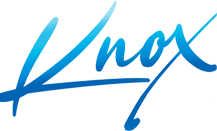The Problem with “Telling” in a Digital World
We’ve all read it:
“I’m a strategic, results-oriented professional with a passion for innovation.”
Sounds impressive. Until you realize… absolutely anyone can say that.
Welcome to the problem of telling without showing. In today’s hyper-digital, post-resume world, where clients, hiring managers and peers can Google you in two seconds flat – empty phrases don’t cut it anymore.
Why “Telling” Doesn’t Build Trust
When someone lands on your LinkedIn profile (or bio, website or speaker sheet), they aren’t just reading what you say about yourself – they’re looking for evidence.
Anyone can call themselves:
- A thought leader
- A high performer
- An innovative problem solver
But unless there’s proof to support those claims, it’s just fluff.
The irony? Most professionals think they’re playing it safe and positioning themselves as experts by using these generic terms. But playing it safe is exactly what turns them invisible.
The Brain Craves Proof
We’ve entered what I call the Era of Digital Skepticism.
The human brain is wired to distrust vague claims. And thanks to overused corporate lingo, we’ve become numb to self-congratulatory buzzwords.
What cuts through?
➤ A story with a specific result
➤ A recognizable client or company name
➤ A screenshot or link to the actual work
➤ A comment from a peer or former boss
➤ A post with real-world insight – not a lecture
If your digital presence lacks these “proof points” and “authority cues,” than your claims are as empty as a bad elevator pitch.
The Telltale Signs You’re Just Telling
Ask yourself:
- Do I use words like “dynamic,” “motivated,” “strategic,” or “results-driven” without examples?
- Have I written my profile like a résumé instead of a sales tool?
- Do I say I’m a thought leader… but haven’t shared a single original insight in weeks?
If yes, you’re not alone. But you are missing opportunities.
What To Do Instead: Start Showing
You don’t have to win a Nobel Prize to prove your value. You just need to start showing:
- Tell a short story about a project that worked
- Share a testimonial or pull quote from a client
- Use real numbers (increased sales by 18% and cut turnaround time in half)
- Write a post that teaches something you’ve learned, instead of telling people you’re smart
TL;DR
Stop telling. Start showing.
Because in a world where your name will be Googled before your résumé is read, your digital footprint is your credibility.
And when your online presence validates your expertise – it stops being a vanity exercise and starts being a career asset.



